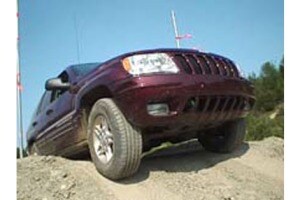The Twist on Torque
 Edmunds.com
Member, Administrator, Moderator Posts: 10,316
Edmunds.com
Member, Administrator, Moderator Posts: 10,316
 The Twist on Torque
The Twist on Torque
Specifically, what are the differences between horsepower and torque? If you flip through the pages of any automotive publication, you'll notice that these two measurements are commonly listed under vehicle specifications. And while the average car enthusiast knows that both horsepower and torque play a role in performance, most of them don't understand exactly how or why.
0

Comments
Force = Mass X Acceleration. Power = Work / Time. Work = Force X Distance, so Power = Force X Distance / Time. Distance / Time = Speed. So Power = Force X Speed. Power is the time rate of doing work.
Power is a term James Watt concocted to compare water lifting capacities of different pumping systems. It has little use in vehicle performance except for top speed potential (remember, velocity related).